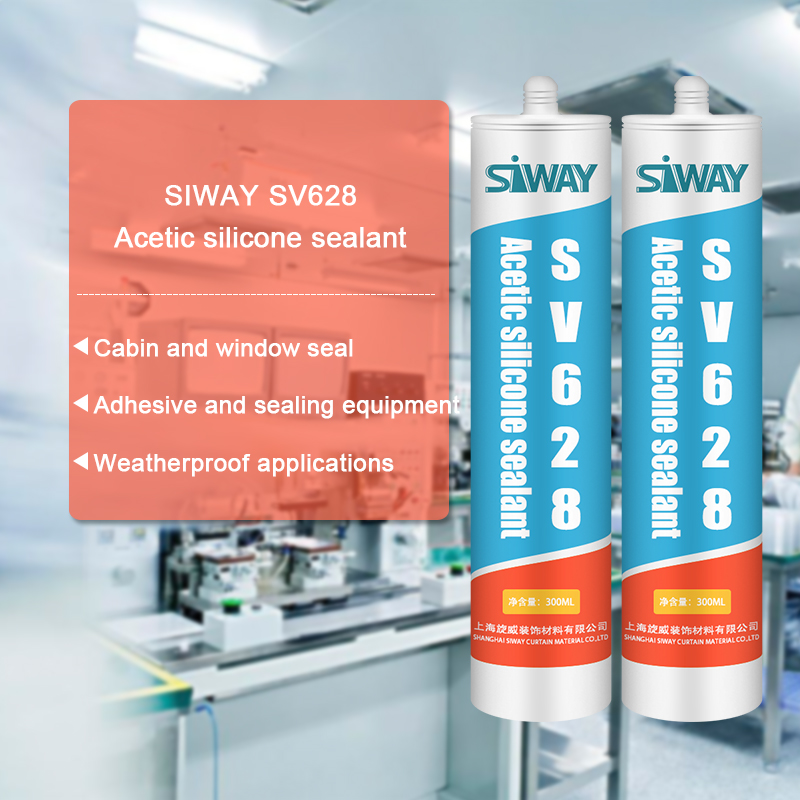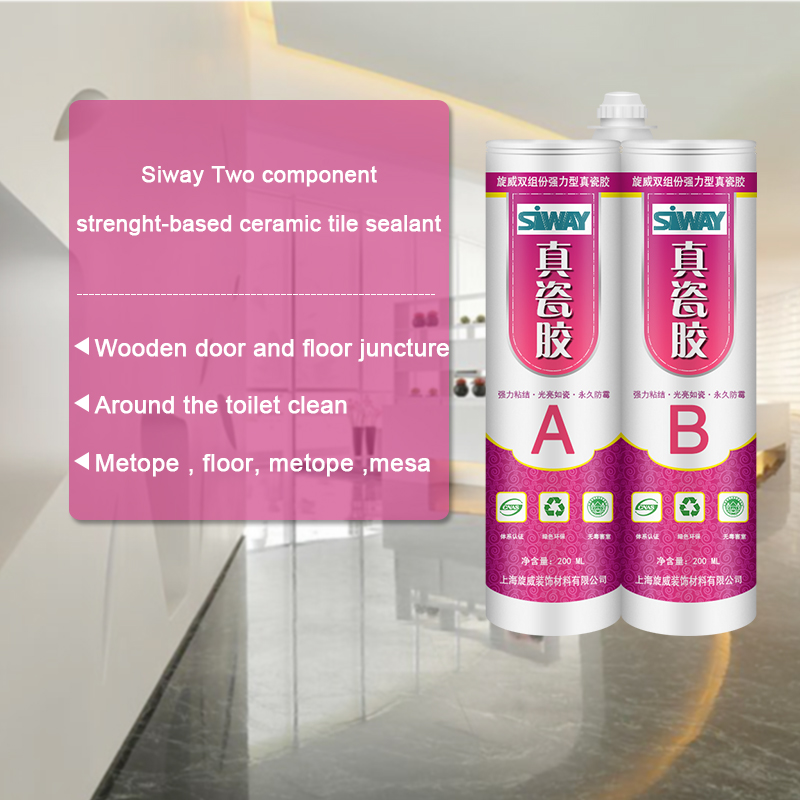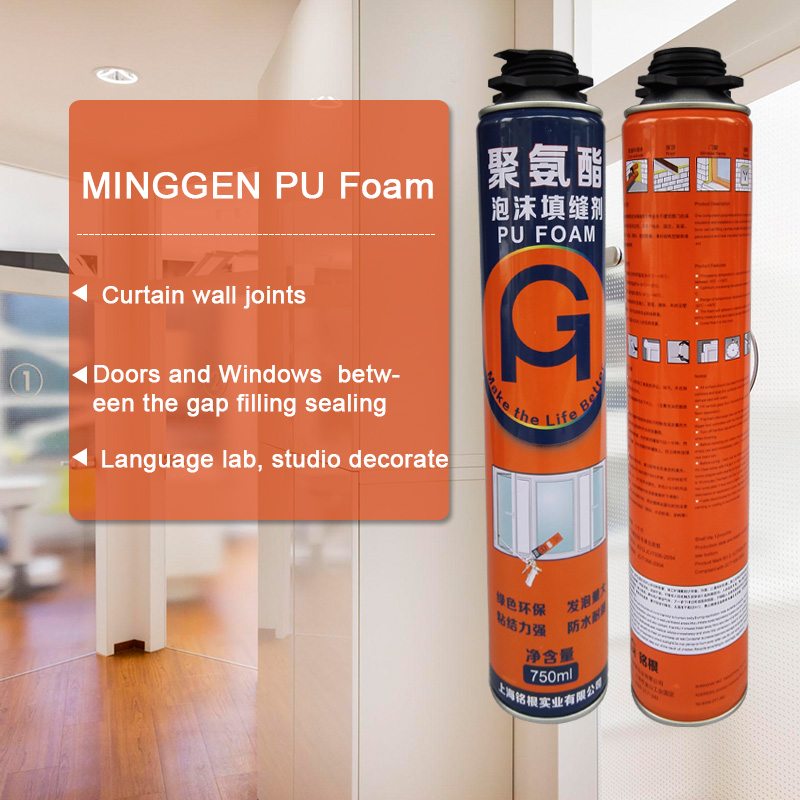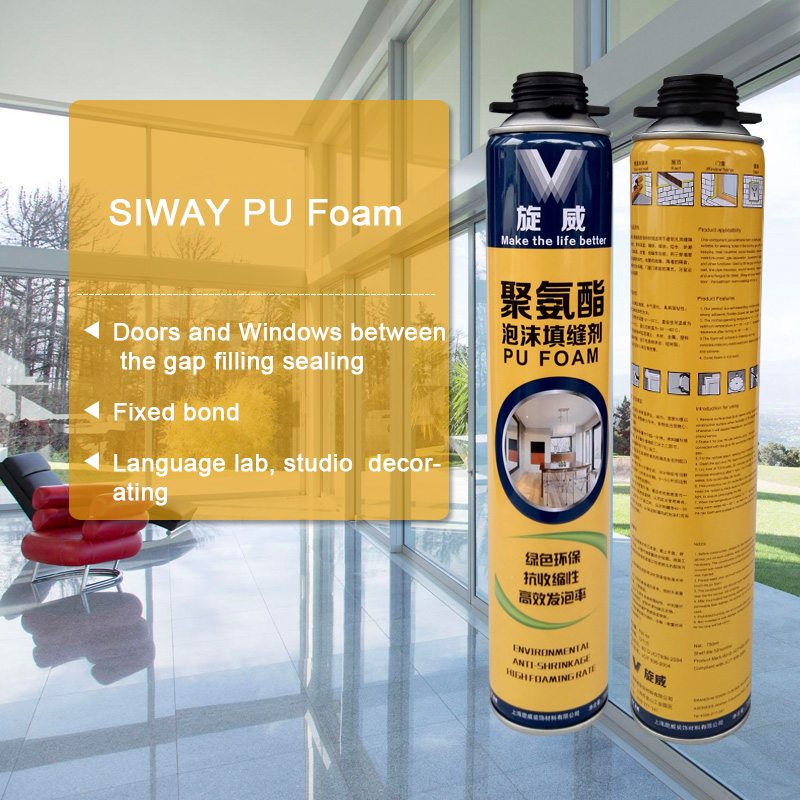OEM Factory for SV-628 Acetic Silicone Sealant to Estonia Manufacturer
Short Description:
Description It is one- component, moisture curing acetic silicone sealant. It cures fast to form a permanently flexible, waterproof and weather resistant silicone rubber. Where to use Widely used in construction, glass assembling and home decoration.SV-628 has good adhesion to most common building materials e.g. glass, ceramic, tile, wood and fiber glass. Key Features 1. 100% silicone 2. Easy to apply 3. Excellent elasticity 4. Excellent adhesion to most common building materials ...
With our rich experience and considerate services, we have been recognized as a reliable supplier for many international buyers for OEM Factory for SV-628 Acetic Silicone Sealant to Estonia Manufacturer, Our final goal is "To try the best, To be the Best". Please feel free to contact with us if you have any requirements.
Description
It is one- component, moisture curing acetic silicone sealant. It cures fast to form a permanently flexible, waterproof and weather resistant silicone rubber.
Where to use
Widely used in construction, glass assembling and home decoration.SV-628 has good adhesion to most common building materials e.g. glass, ceramic, tile, wood and fiber glass.
Key Features
1. 100% silicone
2. Easy to apply
3. Excellent elasticity
4. Excellent adhesion to most common building materials
5. Outstanding weatherproofing capability
6. Fast Curing
Basic Application
1.All kinds of glass curtain wall weatherproof seal
2.For metal (aluminum) curtain wall, enamel curtain wall weatherproof seal
3.Joint sealing of concrete and metal
4.Roof joint seal
Technical data sheet
Technical data sheet for reference,
| Test standard | 1000 | |
| Appearance | ISO 11600 | Have no grain, no agglomerations |
| Extrudability,g/ml | ISO 8394 | 450 |
| Tack Free Time,min | ASTM C 679 | 20 |
| Density,g/cm3 | ISO 1183 | 1.0 |
| Slump,mm | ISO 7390 | 0 |
| Heat weight loss,% | ISO 10563 | 7 |
| Ultimate Tensile Strength,MPa | ISO 8339 | 0.4 |
| Ultimate Elongation,% | ISO 8339 | 150 |
| Ultimate Shear Strength, MPa | ISO 4587 | N/A |
Certification
JC/T881-2001 20LM; GB/T14683-2003 20LM.
Color
clear, black, silvery gray, white, brown
Package
300ml in cartridge * 24 per box, 590ml in sausage *20 per box
Shelf life
12 months
Note
If you want the TDS or MSDS or other details, please contact with our sales person.
Polyguard Products, Barrier Products Division
The Polyguard Particle Barrier is an insect exclusion product and is easy to install. Used around the perimeter of the building, it can significantly reduce the quantity of termiticides needed to protect the structure.
Polyguard has registered our barrier products with the EPA, who
along with state agencies regulates pesticides. However, Polyguard’s barriers are classified by the EPA as “devices”, since they contain no toxic components.
Termites trying to get into a structure are unable to penetrate the
Polyguard Particle Barrier. Also important, in the case of the
Reticuletermes flavipes species, is that the insects are unable to get
out of a structure which they previously penetrated. In the majority
of infested structures, there is not sufficient moisture in the building
for Reticuletermes flavipes, so they have to come out to obtain
moisture.
TERM Sealant Barrier is a sealant barrier, applied with a caulking gun or smoothing tool, and used for both waterproofing and insect
exclusion . TERM Sealant Barrier is a component of the non-structural TERM Barrier System which, when properly constructed as part of the building envelope, acts as a barrier to almost all pests. Because almost all pests are excluded for the life of the structure, the need for pesticide treatment should be permanently and drastically reduced.
TERM Termite Bath Trap and TERM All Pest Bath Trap Barrier uses TERM Particle Barrier to permanently block termites. Add a stainless steel mesh barrier which is sealed to the concrete slab with TERM Flashing Barrier and with TERM Sealant Barrier. The All Pest Bath Trap Barrier blocks everything, including fire ants and rodents.
For more information, visit www.InsectExclusion.com
MIT 6.S079 Nanomaker, Spring 2013
View the complete course: https://ocw.mit.edu/6-S079S13
Instructors: Dr. Katey Lo, Dr. Joseph Summers, Prof. Vladimir Bulovic
This video is a tutorial of preparing a test pattern through a process of curing the PDMS, opening the microfluidic inlet and outlet ports, cleaning the PDMS, bonding it to glass, and using corona treatment.
License: Creative Commons BY-NC-SA
More information at https://ocw.mit.edu/terms
More courses at https://ocw.mit.edu





